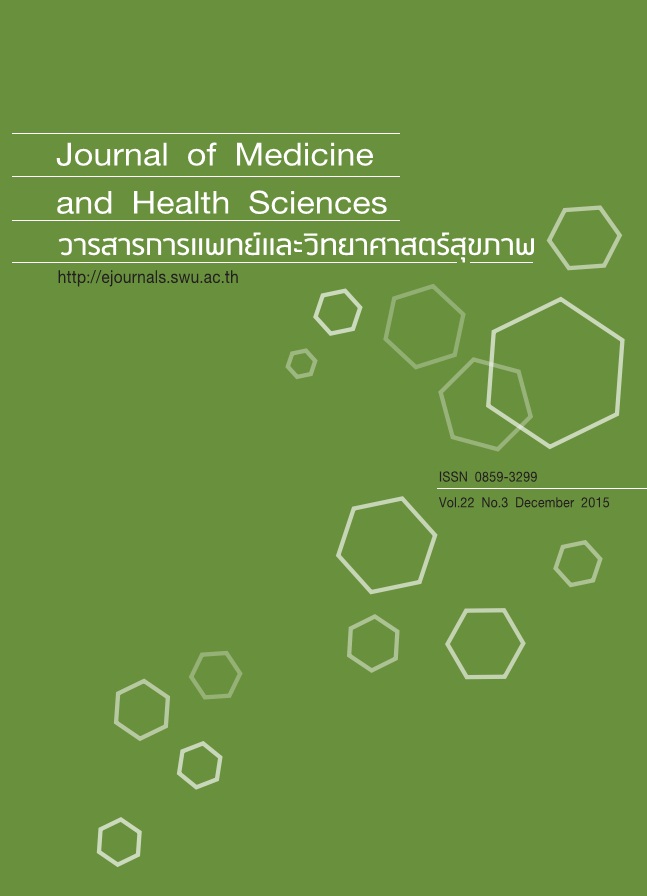Effect of monoolein on inhibition of tumor growth in cervical cancer xenografts in nude mice
Keywords:
monoolein, HeLa cell, tumor growth, in vivo study, xenograft nude mice modelAbstract
Monoolein (MO), a glycolipid biosurfactant purified from Exophiala dermatitidis fungus culture broth was previously demonstrated anti-proliferative activity against cervical cancer cell line. We investigated the effect of monoolein on the implanted tumor growth in nude mice. The cytotoxicity test of monoolein on HeLa cells proliferation was examined by using the 3-(4,5-Dimethylthiazol-2-yl)-2,5-Diphenyltetrazolium Bromide assay (MTT assay). For in vivo study, HeLa cells were implanted subcutaneously into the dorsal of BALB/c-nude mice to form xenograft tumors. Mice were divided into 3 groups; control mice were treated with MO, tumor-bearing mice treated and untreated (HeLa-MO and HeLa-Vehicle group, respectively). The administration of MO was performed by injecting with 200 mg/kg BW/day whereas HeLa-Vehicle group was injected with 0.05% ethanol once daily for 30 days respectively. Tumor size was measured every two days and tumor volume was calculated. Histopathological examination by hematoxyline and eosin staining was performed. The results showed that the proliferation of cultured HeLa cells were significantly inhibited by MO in a dose-dependent manner. The half maximal inhibitory concentration (IC50) was 34.87 ± 1.13 µg/ml. Importantly, MO showed significantly lower tumor development in HeLa-MO group than that in the HeLa-Vehicle group. The histopathological analysis showed that the MO treatment significantly reduced the mitotic figure in HeLa-MO group compared with HeLa-Vehicle group (p<0.001). In conclusion, the present study demonstrated that monoolein significantly suppressed the HeLa cell xenograft tumor growth in nude mice model.Downloads
Published
2015-11-23
Issue
Section
Original Article


